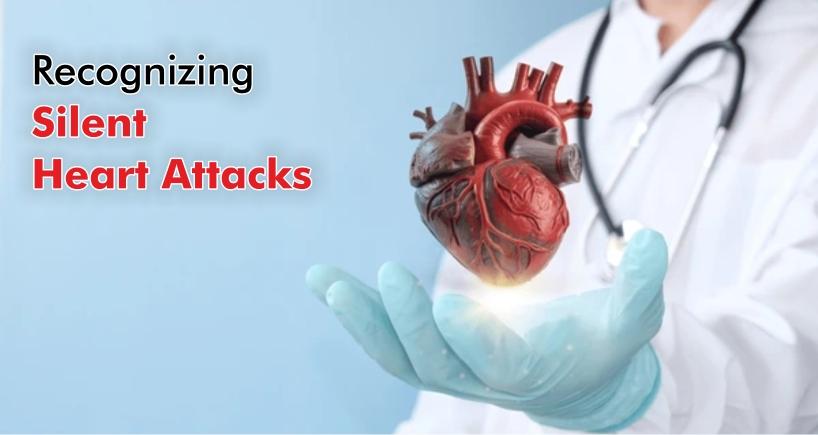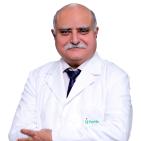
Recognizing Silent Heart Attacks
Silent heart attacks, also known as silent ischemia, can be challenging to recognize because they occur with minimal or no symptoms. Silent heart attacks are often discovered later, sometimes when a person undergoes tests for other health issues. However, even though the symptoms may be subtle or absent, a silent heart attack can still cause damage to the heart muscle.
Despite the absence of typical chest pain, some signs and risk factors may help in identifying a silent heart attack.
Risk Factors for Silent Heart Attacks:
Risk factors for silent heart attacks are similar to those for regular heart attacks and include things like high blood pressure, high cholesterol, smoking, diabetes, obesity, and a sedentary lifestyle.
Age: Silent heart attacks are more common in older adults.
Gender: Women are more likely to experience silent heart attacks.
Diabetes: People with diabetes are at a higher risk.
High blood pressure: Hypertension increases the risk of silent heart attacks.
High Cholesterol: Elevated cholesterol levels contribute to heart disease.
Smoking: Smoking is a significant risk factor.
Obesity: Being overweight or obese increases the risk.
Family History: A family history of heart disease can be a contributing factor.
Signs of Silent Heart Attacks:
It is important to remember that the symptoms of silent heart attacks can vary widely among individuals, and some people might not experience any symptoms at all. If you have risk factors for heart disease or suspect you might be having a silent heart attack
1. Unexplained fatigue:
Persistent, unexplained fatigue, especially in the elderly or those with risk factors, can be a subtle sign of a silent heart attack.
2. Shortness of Breath:
Breathlessness, even without chest pain, can be a warning sign. If you experience unexplained shortness of breath, especially during physical activity, consult a healthcare professional.
3. Heartburn or Indigestion:
Sometimes, a silent heart attack may be mistaken for heartburn or indigestion. If these symptoms are unusual or severe, seek medical attention.
4. Discomfort in the Upper Body:
Silent heart attacks can cause discomfort in areas such as the jaw, neck, upper back, or one or both arms.
5. Dizziness or Fainting:
Silent heart attacks may result in dizziness or fainting. If these symptoms are recurring, it’s essential to consult a healthcare provider.
6. Unusual Symptoms:
Silent heart attacks can manifest in atypical ways, such as unexplained anxiety, weakness, nausea, or cold sweats.
Regular visits to a healthcare provider can help detect silent attacks through ECG (electrocardiogram) and blood tests. These tests may reveal signs of previous heart damage.
It’s important to note that recognizing silent heart attacks can be challenging, and some of these symptoms can be attributed to various other health conditions. If you have risk factors for heart disease, it’s crucial to maintain regular medical check-ups and communicate any unusual symptoms or concerns with your healthcare provider. Early detection and management of heart issues, whether symptomatic or silent, are essential for better outcomes.
Categories
Clear allMeet the doctor

- Cardiac Sciences | Adult CTVS (Cardiothoracic and Vascular Surgery) | Heart Transplant | Heart & Lung Transplant
-
38 Years
-
1600



















